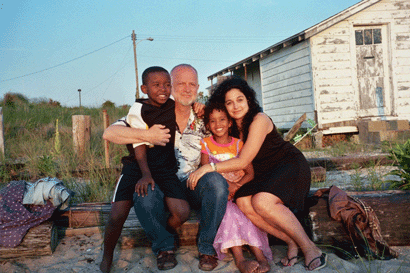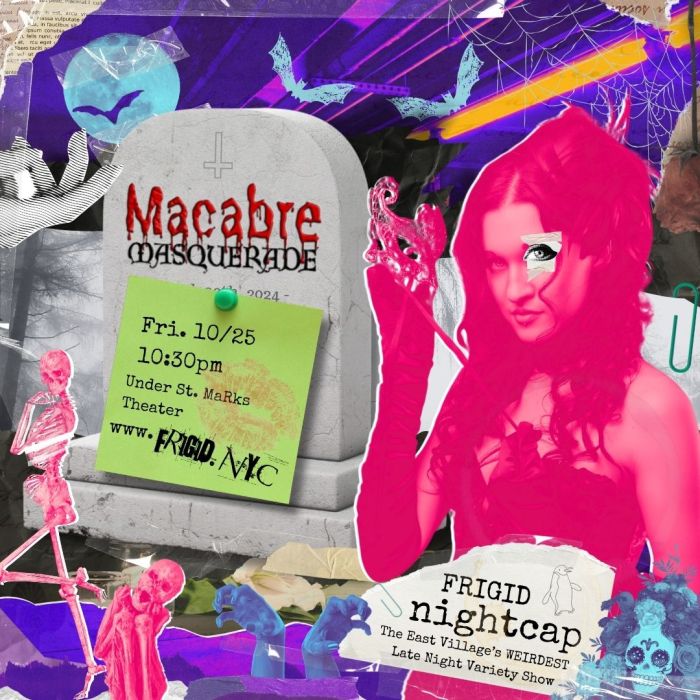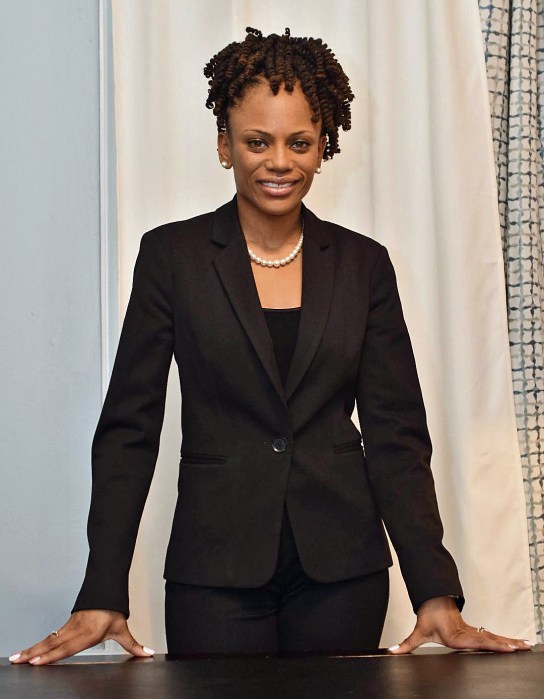A play based on the McCarthy Era gets a celebrity reading at Symphony Space
THE CHAIRMAN: [J. Parnell Thomas, R-N.J.]: Any real American would be proud to answer the question, “Are you, or have you ever been, a member of the Communist Party?” — any REAL American!
MR. LARDNER [scriptwriter Ring Lardner, Jr.]: I could answer it, but if I did, I would hate myself in the morning.
—from the transcript of a hearing before the House Un-American Activities Committee (HUAC), October 30, 1947, and from the 1972 play by Eric Bentley “Are You Now or Have You Ever Been”
Craig Smith and Elise Stone, actors, spouses, got tired of hating themselves in the morning. And that’s why, with three people they’ve worked with over the years at the Jean Cocteau Repertory Company—Jason Crowl, Angela Madden and Michael Surabian—they are now founding a company of their own, the Phoenix Theatre Ensemble.
Hey, folks, is that “er” or “re”? Theater or Theatre?
“Re, of course,” said Craig Smith, theatrically.
“To make it harder for people to find on the Web,” said Elise Stone, wickedly.
On Monday evening at Symphony Space, there will be a reading of Eric Bentley’s “Are You Now or Have You Ever Been,” a time capsule of HUAC and the blacklist era, with proceeds ($50 a ticket) to go toward start-up of the Phoenix Theatre Ensemble.
Playwright Bentley will narrate. Michael Surabian will direct. Craig Smith will be one of the actors. Elise Stone will produce.
Smith and Stone’s connection with Eric Bentley go way back. Counting off on their fingers the other day, they came up with the following Bentley translations/adaptations from Brecht, Wedekind and others in which they have starred, one year or another, at Cocteau Rep: “Man’s a Man,” “Woyzeck,” “Leonce and Lena,” “Lulu,” “Edward II,” and—Elise Stone terrific in the title role—“Mother Courage.”
The Cocteau, long Off Broadway’s and this city’s only true rotating repertory company, was founded by Eve Adamson in 1971, in a storefront at 43 Bond Street. Her goal was to find a place in New York for great plays by great playwrights, directing many of them herself.
Smith showed up at the door in 1973 and reached for a broom. A tall gangling fellow from Beltrami, Minnesota—“actually Craig was born near Fertile, Minnesota,” his wife would like the press to know—Smith has been with the Cocteau ever since… until this August.
He has played every possible part a male could play with that company in some 200 productions, always with distinction, clarity and generosity and has been its leading man for at least the past 20 years, as the Cocteau moved down to the ancient but honorable140-seat Bouwerie Lane at the corner of Bond and Bowery.
Stone, a dark-haired flaming beauty born and bred in the Bronx, came to the Cocteau in 1985. She has been that theater’s forceful, flexible leading lady since soon thereafter, meeting Craig when they first worked together at the Cocteau in “Lunin,” a drama by Russia’s Edvard Radzinski. “I played She,” the actress said.
If she was She, Craig, what were you?
“I was Lunin,” he said with a what-else shrug.
“And that’s the way it still is,” said She. “The embodiment of all the women in your life.”
They were married in 1989, and live in the East Village. They recently acquired, by way of adoption, two children, with a third on the way. “All my children are born in Ethiopia,” Smith said. They are Tesfahun, a boy who is now 7; Hakima, a girl, 5; and—“we hope by Christmas”—Kerim, a boy, 10.
“When I got to the Cocteau,” Stone said the other day, “I had worked at the Hartford Stage Company and been around the country and done a couple of small things in New York. I went through many hours of grueling auditions. Eve told us what the Cocteau was about, and asked me to think it over for a week or two.
“I didn’t need to think it over. I knew when I walked in the door that I wanted to be there. Some friends thought it was a poor idea because of the money, but I didn’t care.
“When I was invited back after my first season, I said yes, as long as the work was meaningful. Same thing, after the second season. Same thing, after the third. At some point I decided I would leave when the work was no longer meaningful and satisfying.”
Everything they’ve done with Bentley—whose books, essays, critiques, and translations, as it happens, provided this journalist with an early guide to what theater is and isn’t—certainly complied with Stone’s requirements.
“I think there could not be a more timely play than Eric’s ‘Are You Now or Have You Ever Been,’” said her husband.
Before there was an “Are You Now” for theater, there was Bentley’s 900-page “30 Years of Treason” (Viking Press, 1971).
“The play is drawn 97 percent from that big book,” Bentley said recently in his rambling Riverside Drive apartment. “When I was working on the book, I was impressed by the fact that many of the passages in it read like theatrical dialogue. I typed up a long version and read it to some friends one Sunday evening. It took five hours. Tony Kushner can hold people for five hours, but…” Dry pause. “So I started shortening it. Now it’s down to a bit more than two hours, but not much.”
The first production of “Are You Now” was by the Yale Repertory on November 8, 1972, the day after Nixon was re-elected. It was subsequently done at Riverside Church and other venues in Manhattan, before triumphant journeys abroad.
“We had a gimmick, here in New York,” said Bentley. “We cast a different star in the role of Lillian Hellman each week. We started with Liza Minnelli. Halston came to the theater every night. He told her: ‘You shouldn’t be in a play like this. It’s very dangerous.’”
Hellman (“I cannot and will not cut my conscience to fit this year’s fashions”) has been cut out of the present version, but crawling Larry Parks, defiant Paul Robeson, clowning but furious Lionel Stander, bewildered Abe Burrows, name-namer Jerome Robbins, self-hating Sterling Hayden and self-justifying Elia Kazan are all there.
“I have done the state some service, and they know’t,” said Othello. Robeson had done mankind some service—great service—black mankind, but also every other kind, and his anger, his contempt of the red-baiters and his pure guts, however Stalinistically misguided, make a fitting close to Bentley’s piece for the stage.
For Elise Stone, for Craig Smith, the time for departure from Cocteau Rep. finally snapped into place this summer, some five years after the arrival of a new efficiency-minded producing artistic director in the person of David Fuller.
“We haven’t really totally worked out an answer to why we quit,” said Smith. “I want to be truthful about it. David Fuller had kind of marginalized all of the senior company members. But beyond that, the Cocteau began to become something other than it—”
“—pretended,” his wife threw in.
“Than it presented to the outside world,” said Smith. “In our opinion, anyway, the quality of the work had gotten flat. Every company has peaks and valleys, but the Cocteau of late has had hardly any peaks.”
The Phoenix Theatre Ensemble is looking toward new peaks. Craig Smith and Elise Stone and Eric Bentley are now and have ever been mountain climbers.

































